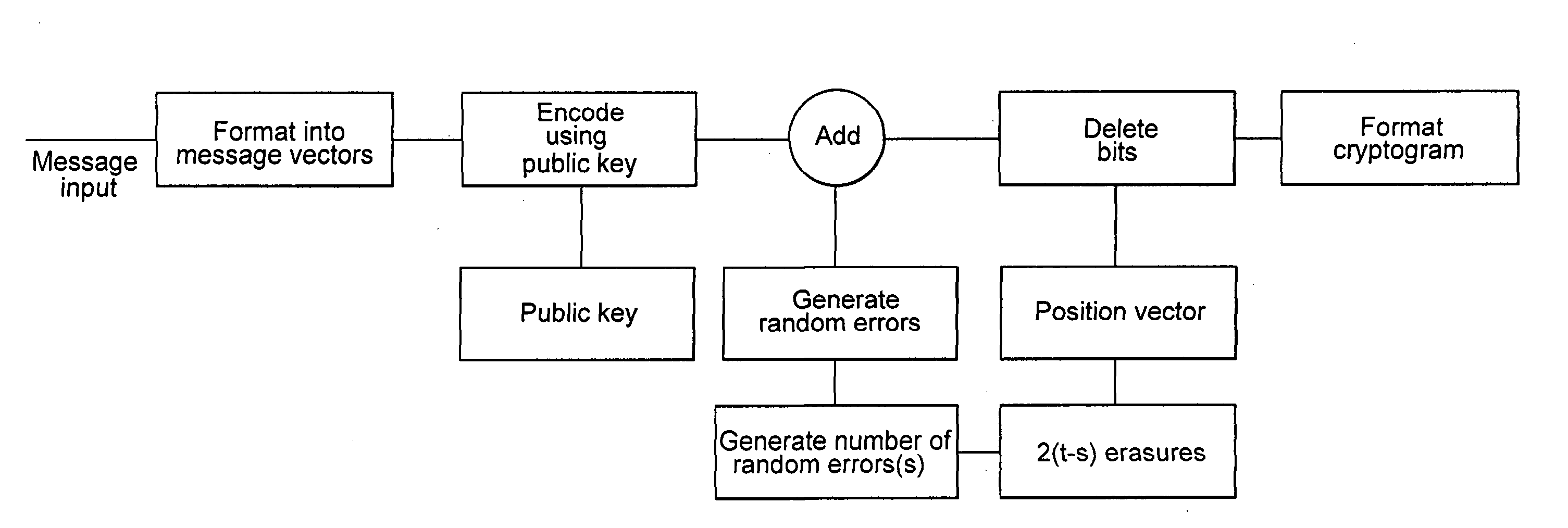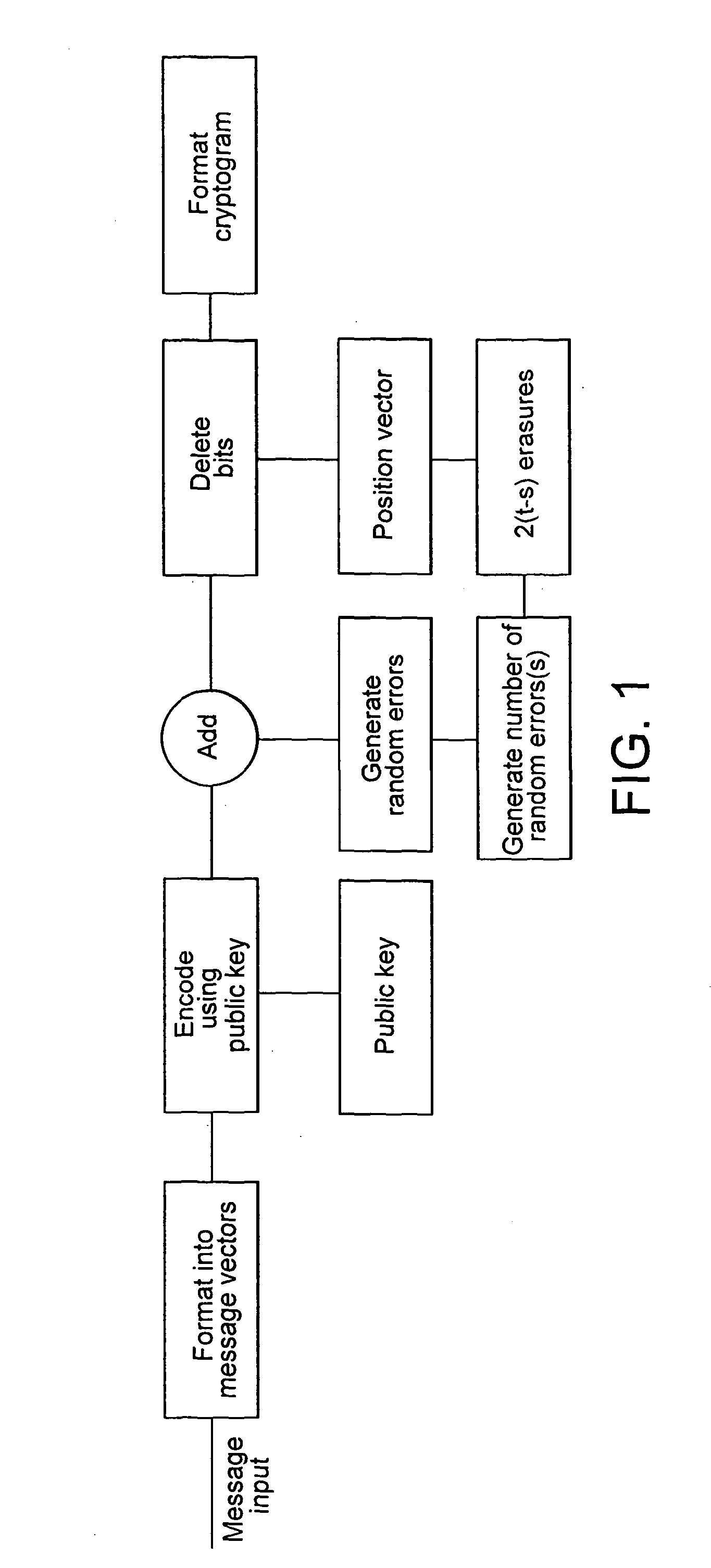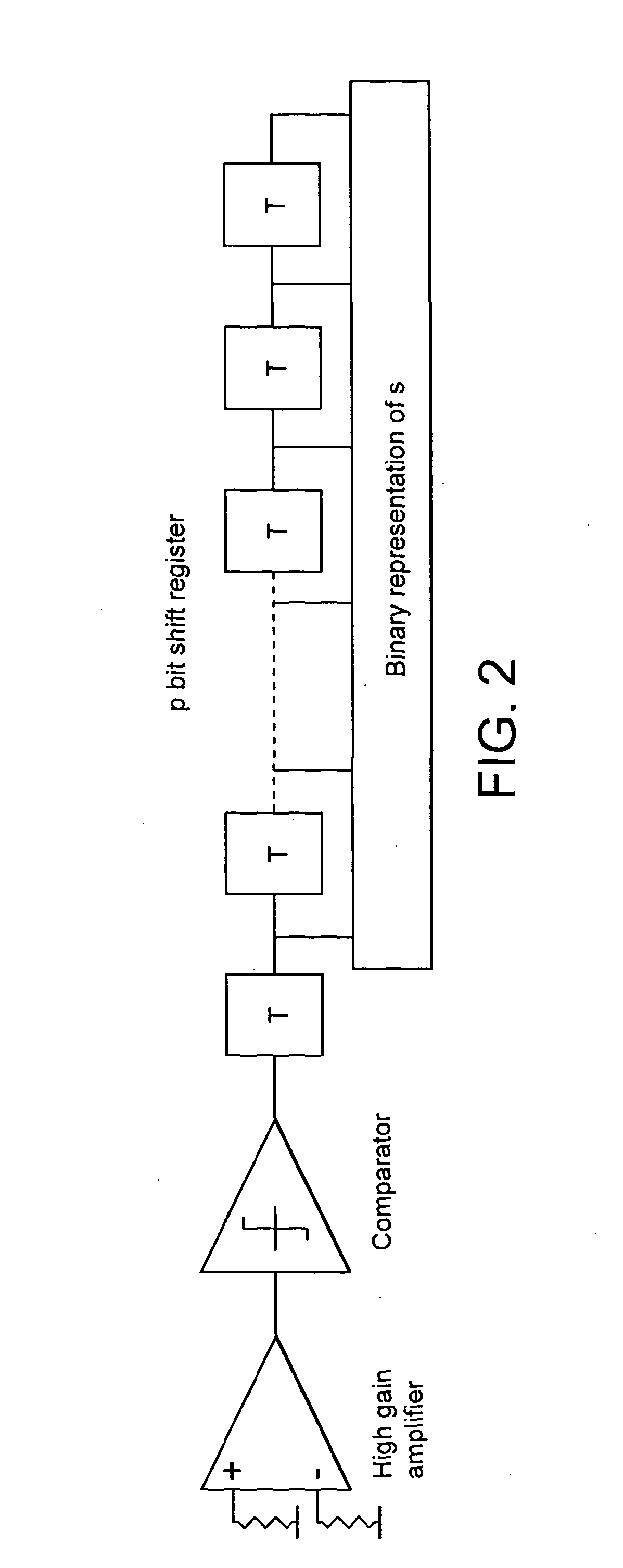Public key cryptosystem based on goppa codes and puf based random generation
- Summary
- Abstract
- Description
- Claims
- Application Information
AI Technical Summary
Benefits of technology
Problems solved by technology
Method used
Image
Examples
Embodiment Construction
[0027]The message information to be sent, if not in digital form, is digitally encoded into binary form comprising a sequence of information bits. The method of encryption is shown in FIG. 1. The message comprising a sequence of information bits is formatted by appending dummy bits as necessary into an integral number m of binary message vectors of length k bits each. This is carried out by format into message vectors shown in FIG. 1. Each message vector is scrambled and encoded into a codeword, n bits long, defined by an error correcting code which is derived from a binary Goppa code and a scrambling matrix. The binary Goppa code is derived itself from a non-binary Goppa code and the procedure is described below for a a specific example.
[0028]The encode using public key shown in FIG. 1 carries out the scrambling and codeword encoding for each message vector by selecting rows of the codeword generator matrix according to the message bits contained in the message vector. This operati...
PUM
 Login to View More
Login to View More Abstract
Description
Claims
Application Information
 Login to View More
Login to View More - R&D
- Intellectual Property
- Life Sciences
- Materials
- Tech Scout
- Unparalleled Data Quality
- Higher Quality Content
- 60% Fewer Hallucinations
Browse by: Latest US Patents, China's latest patents, Technical Efficacy Thesaurus, Application Domain, Technology Topic, Popular Technical Reports.
© 2025 PatSnap. All rights reserved.Legal|Privacy policy|Modern Slavery Act Transparency Statement|Sitemap|About US| Contact US: help@patsnap.com



